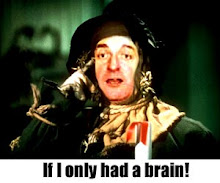Someone did a fine job in organising a wonderful discussion of the work of John Ford. Going on over four days, I ended up attending a directors' panel (Jim Sheridan, Thaddeus O'Sullivan, Brian Kirk,and John Boorman), a writers' panel (Patrick McCabe, Eoghan Harris, Colin Bateman, and Ian Power), a composers' panel (David Holmes, Kyle Eastwood, and Christopher Caliendo) and - highlight of the symposium - an interview with Peter Bogdanovich.
The Directors' Panel, contrary to what you might expect, was dominated by Brian Kirk ('Game of Thrones', 'Middletown') and Thaddeus O'Sullivan ('Nothing Personal', 'Veronica Guerin'). Kirk showed a real passion for Ford and backed up his arguments with solid observations on the director's work. O'Sullivan complemented this with some astute film school type analyses of scenes and styles (he gave a lucid commentary on a scene from 'My Darling Clementine'). Chairing the discussion was critic and novelist, Kim Newman, but good though he was, he couldn't rouse Boorman to do more than recount one or two amiable stories about Ford (predictably concerning his drinking habits). If Boorman proved difficult, reigning in the obnoxiously rambling Sheridan was impossible. Not only did Sheridan confess to only a cursory knowledge of Ford's oeuvre (why was he there then?), he constantly droned on and on, often losing the train of his thought and evidently taking his audience for some crowd of imbeciles ("I just turn up on set and the camera just appears in some place. I don't know how films get made.").
The Writers' Panel, though it featured some astute comments from Bateman (less so from tyro Power), was largely a battle of wills between McCabe and Harris. Harris proclaimed his love of rhetoric; a speech by Fonda's Lincoln in 'Young Mr Lincoln', dealing with ideals and lofty notions of right and wrong, was his quintessence of drama. McCabe objected; this was cornball stuff and didn't take account of the complexities drama should really respect. Black and white is appealing, but it hides a multitude of sins. While I get misty eyed with the worst of them when confronted with an aspirational speech, I can tell you I was firmly in the McCabe camp. What we all wanted was a Celebrity Death Match between the two, or failing that just a no holds bared debate.
The Composers' Panel was dominated by host, Dave Fanning, and guest David Holmes, for all the wrong reasons. Eastwood (who has written a lot of music for his father's films) seemed to have little to say, Caliendo a lot more; one way or the other neither could get a proper word in between Fanning's phone going off ('My son wants me to get him tickets for Jay-Z for tonight.') and Holmes' monopoly of the event. Obviously Holmes, a self-taught DJ and composer, has a story to tell, but narrative is not his strong point and he rivalled Sheridan in his rambling. Worse, he showed little respect for his fellow guests or the audience. At one point he stood up and walked out to go to the toilet. Fair enough, but as if this attention seeking was enough, he got up again close to the end claiming he had to run for a train. When the event did end and we left the auditorium, he was standing outside chatting away.
The highlight of the whole event was the interview with Peter Bogdanovich. Anyone who has read 'Easy Riders, Raging Bulls' cannot consider Bogdanovich without a little distaste. Like Coppola and many others, fame went to his head in unpleasant ways. He curried favour with many of the greats in what strikes me as a queasy way (Welles staying over, hobnobbing with Ford). He's kind of like the slick teacher's pet everyone loves to hate. Then there was his peculiar later life (something tactless interviewer Paul Byrne seemed determined to bring up). However, now in his seventies, he has become absorbed into that very pantheon of classic directors he once paid excessive obeisance to. So when he compared himself to Welles with Tarantino in what had been his role ("I stay over with Quentin"), I think the audience forgave him. Certainly his string of on the money impressions of old stars like Cagney and Stewart won me over in the end.
Labels: Film, Peter Boganovich, scriptwriting


